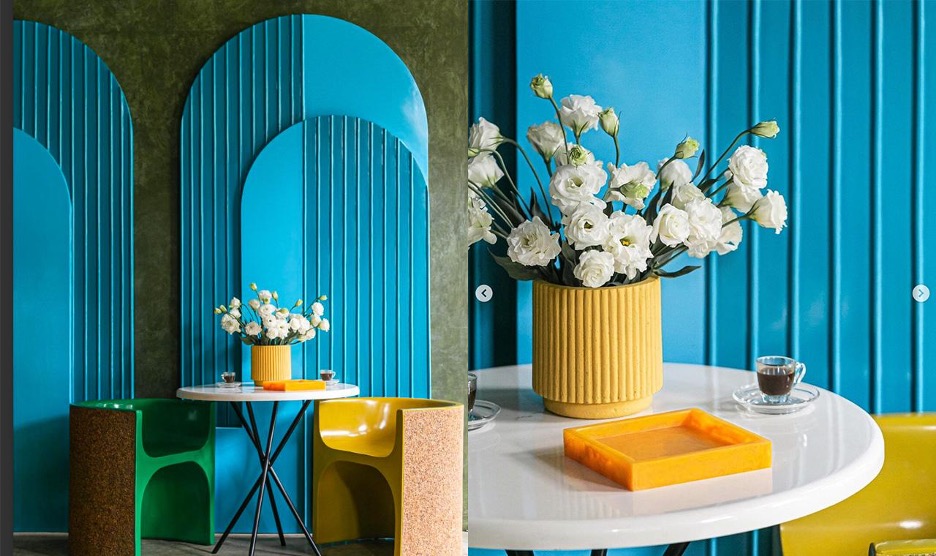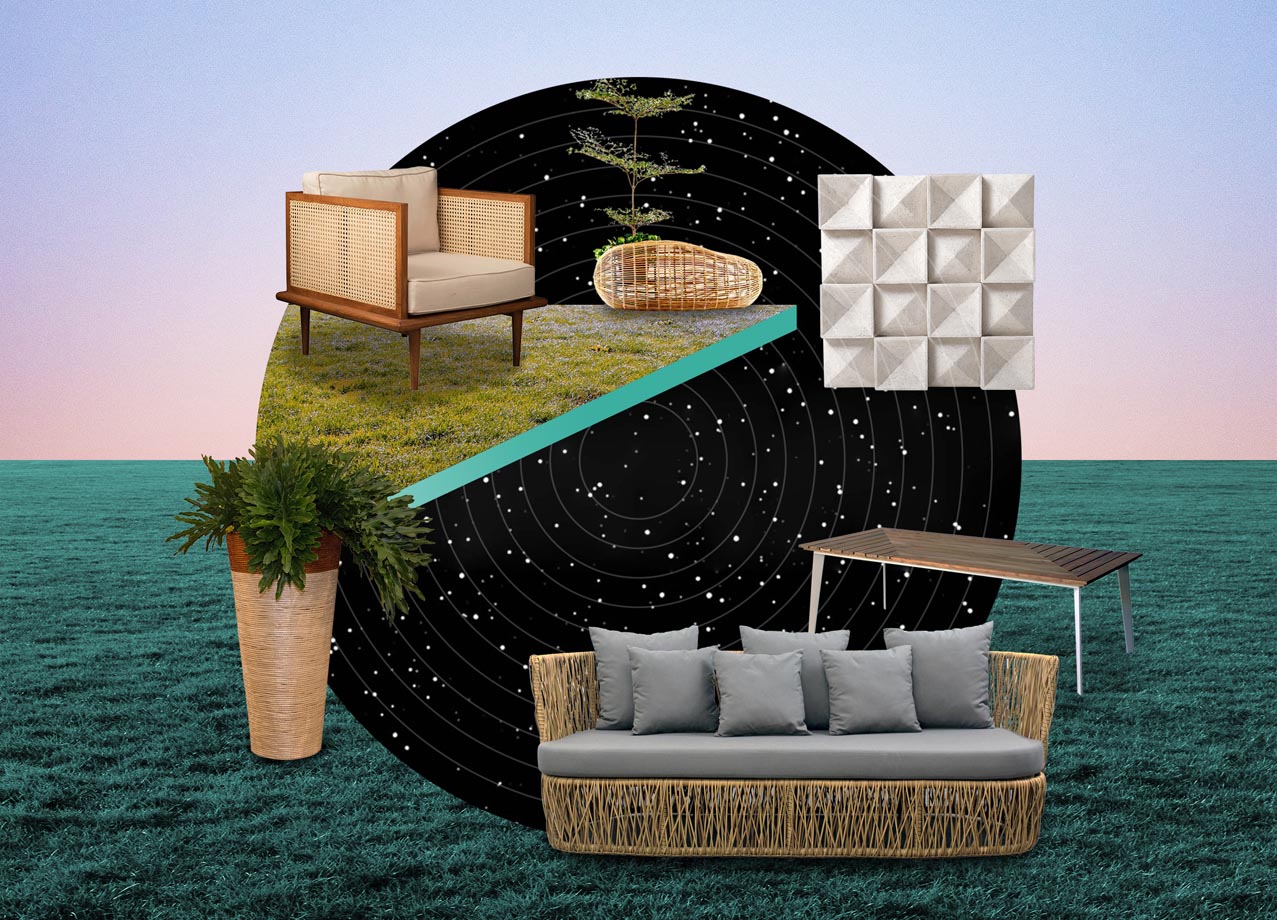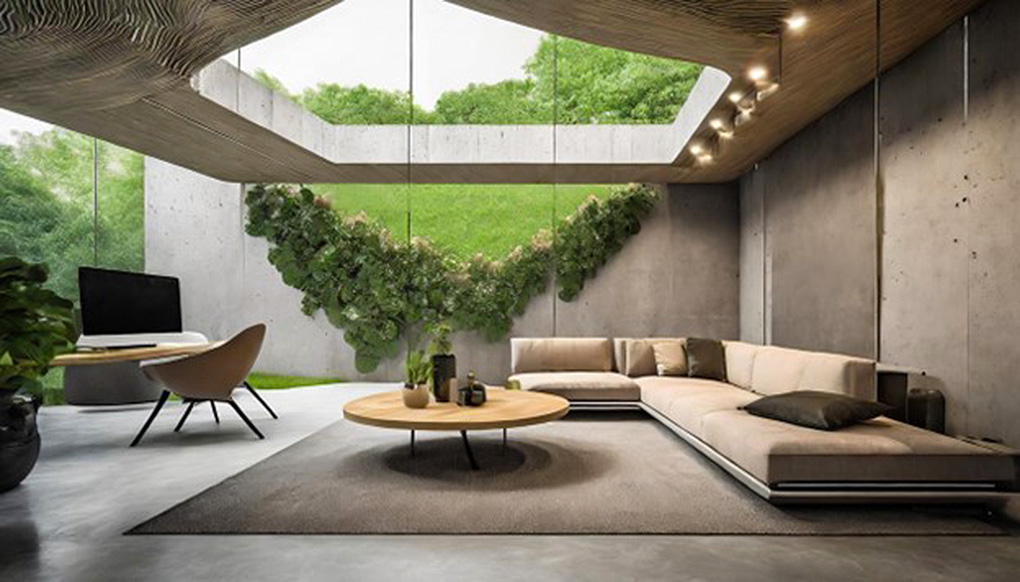
The Future of Interior Environments with AI
It’s a hot-button topic: artificial intelligence (AI), once envisioned to streamline mundane and
routine tasks for people have sped up at such an astonishing pace that these open-sourced technologies have the ability to weave complex imagery and hyper-intricate renderings that have stunned the design world.
Artists and designers are divided on their thoughts of AI changing the landscape of the design industry and the overall practice of design. AI and its generative design capabilities are shaping up to be the most definitive trend of 2023. Suddenly, anyone with an internet connection can become a designer, effortlessly generating entire rooms, buildings, cities, and ecosystems as long as they type the right prompts.
AI and Interior Design: Will it replace human creativity?
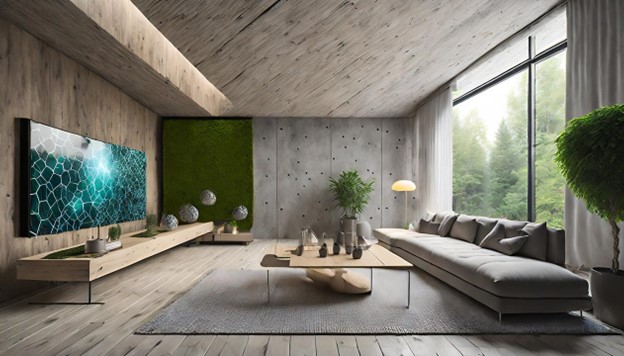
But while this whole AI business is uncharted territory, everyone — artists, designers, writers, journalists, academics — navigates one step at a time, others offer a different perspective. Rather than threatening to replace human talent, AI programs actually supplement it, while opening doors for creativity and widening the scope for opportunities to serve more people.
One example that showcases the impact of AI on the field of interior design is Ludwig, developed by Fulhaus, an interior design company based in Montreal, Canada. The firm utilizes AI to assist real estate investors in efficiently furnishing their properties. By uploading photos of appealing decor, Ludwig generates a shopping list of furniture that fits the individual's style, providing a faster alternative to traditional interior design services — think Pinterest, but with real-time retail recommendations.
This example demonstrates how AI can streamline and simplify the design process while democratizing the old guard of design once shrouded in mystery. Through AI, design becomes more accessible to a broader audience.
Although there are fears that AI — which develops and becomes more sophisticated over time — can threaten human creativity, professionals in the design industry choose to embrace the technology instead. Despite the unparalleled ingenuity AI-generated images showcase as they are unrestrained by conventions or practicality, it still falls short in grasping the human effect design has — that is, its social and emotional impact.
This is where the human touch becomes indispensable — an individual’s judgment and intervention not generated by machine learning is still valuable in creating spaces and experiences for humans. But rather than view the issue as one of man vs. machine, AI can instead be seen as a tool that helps designers reimagine boundaries and revisit their views on what is possible.
So just how can AI technology be harnessed in the design world, and what applications can be done to help designers? Here are some of the ways AI can shape the world of interior design.
As an assistant tool for design efficiency
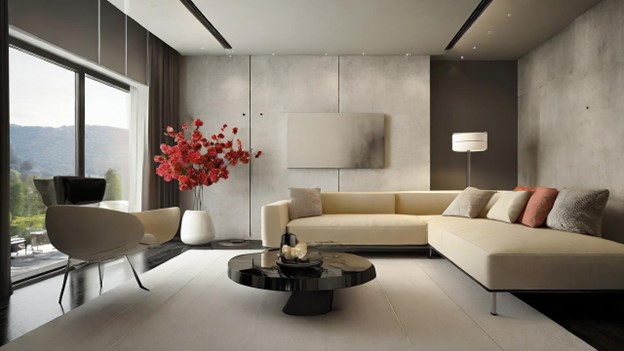
AI-powered interior design tools can be used as a machine assistant of sorts for designers, increasing the efficiency and effectiveness of the design process. Tasks such as color matching, furniture selection, and space planning can be automated, enabling designers to work more productively. This frees up designers’ headspace to tackle more complex and creative challenges, resulting in more impactful and innovative designs.
Creating personalized recommendations
Another advantage AI-powered interior design tools have is their capability to generate personalized recommendations.
Designers can feed their (or their clients’) preferences and design ideas into the program. The platform will then churn out suggestions for furniture, color schemes, and other design components tailored to the project. This approach gives designers even more leeway to create spaces that align with their clients' tastes and aspirations.

Trend forecasting
Another area where AI can be instrumental to the design industry is through trend forecasts. By analyzing customer data and historical consumer preferences, AI can predict future design trends, lending themselves into styles and products. Leveraging AI to forecast upcoming trends helps designers to stay ahead of the curve in design choices and material selections. Speaking of trends, check out the Pantone Color of the Year, Peach Fuzz.
Planning spaces
AI can help speed up the process when it comes to space planning. By analyzing data such as the occupants’ requirements, as well as the dimensions, shape, windows, and doors, AI platforms can optimize spaces and create more efficient layouts.
It helps people live better, too: AI can optimize lighting, heating, and cooling systems for energy efficiency, resulting in spaces that are both functional and environmentally conscious.
AR and VR Visualization

One of the most exciting AI applications in the world of design, technologies such as augmented reality (AR) and virtual reality (VR) have transformed the way designers and clients interact with design concepts.
Imagine if clients could actually immerse themselves in virtual or augmented reality experiences of a space plan or a realistic 3D render. This provides them with a richer opportunity to visualize the space and make decisions on colors, textures, and furniture before any work is done. This also allows clients to save on costs by seeing how their space will look like through the virtual model, and making necessary changes then and there.
While the possibilities of AI can be exciting, remember that this technology only enhances the need for human creativity and talent. AI will need human intervention to ensure that it reaches its full potential.
AI technology is catching up fast — and to stay ahead of the curve in the design world, it is vital to keep yourself abreast with the latest trends and tools that shape the game.
AI Illustrations by Jonathan Roxas



